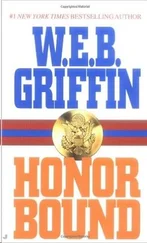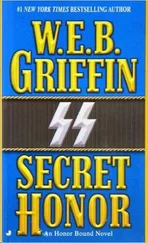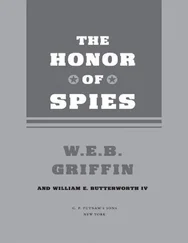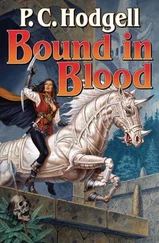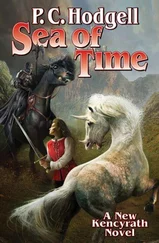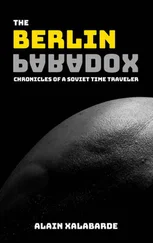In everything not touching on Pereden, he seemed to be all right, although no doubt Dari would continue to press for his replacement. But if Adric or Timmon were ever to learn the truth . . .
“Huh,” said Gorbel. “You two have all the luck. All I got was this dumb chunk of glass.”
Winter 110
I
Bars of light streamed through cracks in the shed’s walls, piercing the jars shelved from floor to ceiling. The air was thick with motes and the scent of crushed herbs. Half a dozen jars had fallen and smashed on the floor, mixing their contents with shards of glass.
What a mess, thought Kindrie.
He gingerly stepped through the debris and picked up a fragment of dried root, trying to guess what it was. His job at Mount Alban was to memorize the order of the containers. However, curiosity as a healer had also led him to learn as much as he could about the herbs themselves. Grayish brown and wrinkled outside, inside white and spongy . . . but it was the fragrance that gave him his clue: angelica.
And this straight, dark brown root with its bitter smell—black snake root, surely.
Alfalfa, feverfew, ginger . . .
There was a pattern, of course: all were good for rheumatism.
He collected every bit he could find, carefully picking out the glass, wincing as splinters pricked his fingers, and laid them out on the table. Now the jars. Some large pieces fit together easily but others had been reduced to a powder that had joined the dancing dust motes. It was impossible to do a complete job, however long he took, and the day was already waning toward dusk.
There. Five partial jars held together by his will, filled with as much of their contents as had survived. Now to return them to their rightful places on the shelves.
Oh, bother. None of the containers were labeled and all had moved to fill any gap. Push some aside here, more there . . .
“Well?” said a sharp voice. “Are you done yet?”
His hand jerked. The shelves trembled, ripe for another disaster, and grew transparent. Kindrie hastily slotted the last jar into place. As he withdrew from the soul-image, its real life counterpart took shape around him, complete with his elderly patient glowering at him across the table. He released Index’s claw of a hand.
“How do you feel?”
The old scrollsman flexed arthritic fingers.
“Better,” he said, almost with reluctance. “Not perfect, mind you, but better.”
“I’m glad.” Kindrie rolled his shoulders to release the tension in them and ruefully regarded his own stinging fingertips. Metaphoric splinters were worse that real ones; the nerves remembered them far longer. “It’s hard to replace what the years have taken away.”
“No cure for old age, eh? There should be. And for death.”
Kindrie sighed. If he had completed his training as a healer at the Priests’ College, would he be better now or warped beyond redemption? Had it been selfish of him to flee? No. Lady Rawneth would have destroyed him even if her hieratic minions hadn’t.
Index rose and started to putter around his shed, gathering the ingredients for alfalfa tea.
“Not perfect,” he repeated over his shoulder, “but fair is fair. The scrollsman with the information that you want, Moyden by name, has gone on an ambassadorial mission to the Poison Courts. We may never see him again.”
“Oh.”
“However, I know something about the history of the Southern Wastes. Before we arrived on Rathillien, the natives say that in their place was a huge inland sea surrounded by rich civilizations. Then the climate changed from temperate to a desert, don’t ask me why or how. They say that even the stars shifted in the sky. Anyway, the sea was cut off from its freshwater sources, turned to salt, and dried up. The cities that clustered around it disappeared into the sand and their people fled. Only their outposts remained—Kothifir, Hurlen, and Urakarn, for example. All of this was some three thousand years ago, during the Fifth Age. By most accounts, Rathillien has had seven.”
Kindrie blinked, trying to comprehend the scope of such vast changes, so baldly presented. If Index had been a singer, and more poetic, he would have suspected that the old man was taking advantage of the Lawful Lie.
“I think,” he said, “that I should talk to Moyden when . . .”
“If.”
“If he returns.”
“You do that. Tell him that you bartered with me and that I will repay him.” Index poured boiling water over his herbs and cradled the cup in gnarled fingers. “Ah,” he said, inhaling the fragrance. “Soul-images are all very well, but give me a fistful of dried leaves every time. You’re doing this for that gray sneak, aren’t you? Take my advice, boy: make sure that he pays you.”
Kindrie stood up and executed a courteous if awkward bow. “All information, ultimately, is for my cousin. I don’t barter with her.”
“Ah.” Index impatiently waved him away. “Beware that one: honorable as she seems, she has the darkling glamour.”
As Kindrie climbed the shed’s stair and crossed Mount Alban’s cavernous entry hall, he dismissed Index’s warning and savored that word: cousin. Bastards had no kin. He was not a bastard. He had a family, small though it was, and moreover not one cousin but two. The thought warmed him as much as his blue woolen robe, a gift from Kirien and finer than he had ever owned before. Kin, and friends.
Here was the central wooden stair rising in its square well up though the layers of the Scrollsmen’s College. Within the cliff face itself was a maze of apartments honeycombing the rock. Bits of conversation reached him as he climbed, scrollsmen and singers at their eternal bickering:
“Facts are for small minds. You couldn’t find yours with both hands and a torch.”
“How could I search with both hands and still hold a . . . wait a minute.”
“Who borrowed my concordance to the law scrolls?”
“I needed to look up a word that rhymes with ‘splendiferous.’ Why?”
“Has anyone seen my experiment?”
“D’you mean the purple thing with black spots? It went that way.”
The voices faded behind him as he reached the three levels on top of the cliff, devoted to public spaces and the Director’s quarters. Over these was the observation deck. The level rays of the setting sun met Kindrie as he emerged from the stairwell and half blinded him. Two figures stood silhouetted against the glare.
“Kindrie,” said one warmly, in Kirien’s voice.
“My lady.”
She laughed. “Such formality.”
The other figure by contrast radiated the cold of the unburnt dead. Kindrie braced himself.
“Singer Ashe,” he said, with an awkward bob of the head.
“I was about to send for you,” said the Jaran Lordan. “I have news.”
She indicated a seat on the ledge between herself and Ashe. Kindrie self-consciously perched on her far side, putting her between himself and the haunt singer. Beyond Kirien’s clean-cut profile, a wry smile quirked Ashe’s thin lips away from yellow teeth within the shadow of her hood.
Kirien held up a fragile piece of linen dotted with knot stitches. “Getting this translated—and you were right: the stitches do constitute a code—has proved surprisingly hard. We have several former Jaran ladies turned scrollswomen at Mount Alban, but none wanted to violate an apparent secret of the Women’s World. Finally I sent a transcript to my great-great-aunt Trishien.”
“The Jaran Matriarch.”
“Yes. She wasn’t eager to translate it either, until she read it for herself. She asks where you got it.”
Kirien’s writing pad was out, her hand moving across it in her spiky script as she recorded their conversation for the matriarch’s benefit. Kindrie imagined Trishien’s own ink-stained fingers jerking across a page as she received Kirien’s message.
Читать дальше

